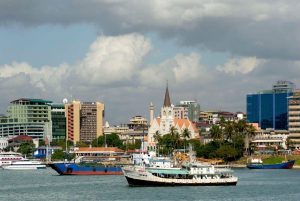The ICAO Council adopted a new report and recommendations today aimed at restarting the international air transport system and aligning its global recovery.
The COVID-19 report and guidelines were produced by the Council’s Aviation Recovery Task Force (CART). They were developed through broad-based consultations with countries and regional organizations, and with important advice from the World Health Organization and key aviation industry groups including the International Air Transport Association (IATA), Airports Council International (ACI World), the Civil Air Navigation Services Organisation (CANSO), and the International Coordinating Council of Aerospace Industries Associations (ICCAIA).
“The world looked to the ICAO Council to provide the high-level guidance which governments and industry needed to begin restarting international air transport and recovering from COVID-19,” underscored ICAO Council President Mr. Salvatore Sciacchitano.
“We have answered this call today with the delivery of this report, and with its recommendations and Take-Off guidelines which will now align public and private sector actions and mitigations as we get the world flying again, in full accordance with the latest and most prudent medical and traveller health advice available to us.”
CART Chairperson Ambassador Philippe Bertoux, the Representative of France to the ICAO Council, noted that the CART guidelines were intended to inform, align and progress the national, regional, and industry-specific COVID-19 recovery roadmaps now being implemented, but not to replace them.
“These guidelines will facilitate convergence, mutual recognition and harmonization of aviation COVID-19 related measures across the globe,” he emphasized. “They are intended to support the restart and recovery of global air travel in a safe, secure and sustainable way.”
“In order to be effective, we need to take a layered and especially a risk-based approach. Measures will be implemented or removed as needed based on the wide ranging medical and other factors which will be at play,” he said.
“Countries and operators need both autonomy and certainty as they take action to get the world flying again,” Bertoux continued, “and the CART guidelines are therefore designed to serve in both these capacities as a common reference, while remaining adaptable. This needs to be understood as a type of ‘living guidance’ which will be continuously updated based on latest risk assessments as we monitor progress and reconnect the world.”
The CART’s Report contains a detailed situational analysis and key principles supported by a series of recommendations focused around objectives for public health, aviation safety and security, and aviation economic recovery.
This content is supplemented by the report’s special ‘Take Off’ document which contains guidelines for public health risk mitigation measures and four separate modules relating to airports, aircraft, crew, and air cargo.
“The world needs aviation and aviation today is in great need of ICAO,” Council President Sciacchitano emphasized. “Global cooperation through this organization has helped countries to connect the world to their mutual benefit for over 75 years, and now it’s helping us to reconnect it. Solidarity among all countries and regions and industry sectors will be critical going forward, and ICAO is where we achieve that for global aviation.”
ICAO Secretary General Dr. Fang Liu also welcomed the CART’s accomplishment and highlighted that ICAO will continue to develop implementation packages to assist Member States to restart the operations and recovery. “Restoring public confidence in air travel has very broad benefits. This isn’t only about the operational and economic viability of the air transport sector, but of entire societies and regions having their economic livelihoods and stability restored”, she commented. The full CART Report is available as part of ICAO’s COVID-19 platform, and will be regularly reviewed and updated based on the latest data and information received from all stakeholders.




